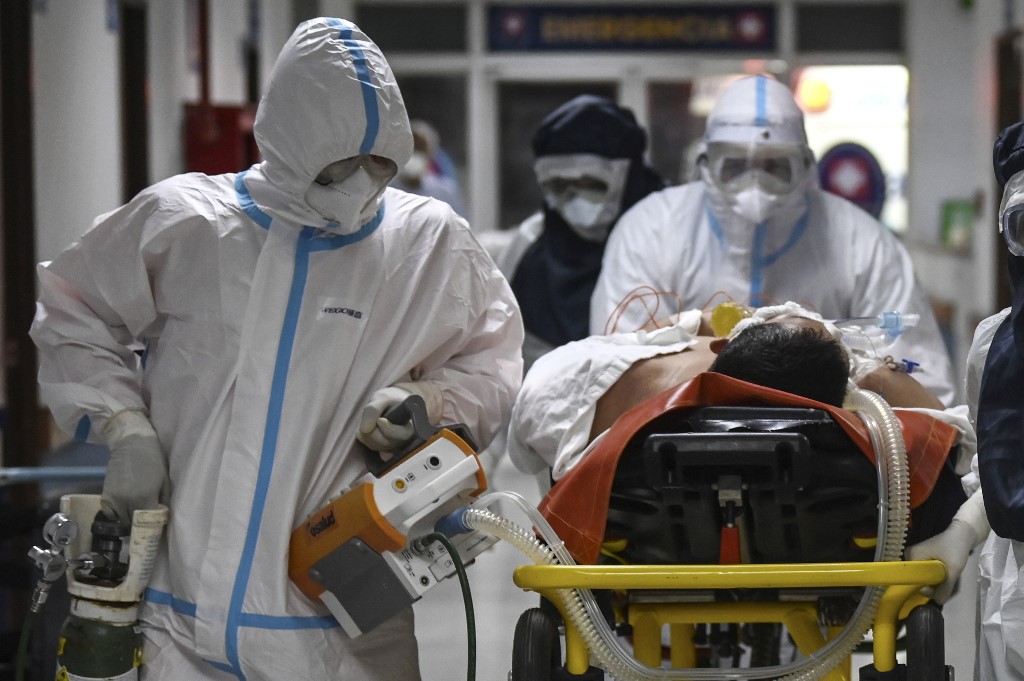Disease puts 1 in 5 globally at severe COVID-19 risk—study

Health workers enter a patient infected with the novel coronavirus COVID-19 in critical state to the San Rafael Hospital in Santa Tecla, La Libertad, 10 km away from San Salvador, on June 11, 2020. (Photo by MARVIN RECINOS / AFP)
An estimated 1.7 billion people — more than 20 percent of the world’s population — risk becoming severely infected with COVID-19 due to underlying health problems such as obesity and heart disease, analysis showed Tuesday.
The novel coronavirus, which has killed more than 420,000 people globally during the first wave of the pandemic, adversely affects patients suffering from co-morbidities.
A team of experts from the London School of Hygiene and Tropical Medicine analyzed global data sets of illnesses including diabetes, lung disease and HIV used these to estimate how many people are at heightened risk of serious COVID-19 infection.
They found that one in five people have at least one underlying health problem putting them in greater danger.
While not all of those would go on to develop severe symptoms if infected, the researchers said around 4 percent of the global population — around 350 million) would likely get sick enough to require hospital treatment.
Article continues after this advertisement“As countries move out of lockdown, governments are looking for ways to protect the most vulnerable from a virus that is still circulating,” said Andrew Clark, who contributed to the study.
Article continues after this advertisement“This might involve advising people with underlying conditions to adopt social distancing measures appropriate to their level of risk.”
Clark said the findings could help governments make decisions on who receives a COVID-19 vaccine first when one becomes available.
Consistent with other studies about COVID risk, the authors found that older people are in greater danger of getting seriously unwell from the virus.
Less than 5 percent of people aged under 20 have an underlying risk factor, compared with two thirds of over 70s.
Countries with younger populations have fewer people with at least one underlying condition, but risks vary globally, according to the analysis.
Small island states such as Fiji and Mauritius have among the highest rates of diabetes — a known COVID-19 risk factor — on Earth, for example.
And countries with the highest prevalence of HIV/AIDS, such as eSwatini and Lesotho, also need to be vigilant, said authors of the research published in The Lancet.
In Europe, more than 30 percent of people have one or more health conditions, it showed.
Writing in a linked comment, Nina Schwalbe from Columbia University Mailman School of Public Health, said the study showed “it is time to evolve from a one-size-fits-all approach to one that centers on those most at risk.”
For more news about the novel coronavirus click here.
What you need to know about Coronavirus.
For more information on COVID-19, call the DOH Hotline: (02) 86517800 local 1149/1150.
The Inquirer Foundation supports our healthcare frontliners and is still accepting cash donations to be deposited at Banco de Oro (BDO) current account #007960018860 or donate through PayMaya using this link.